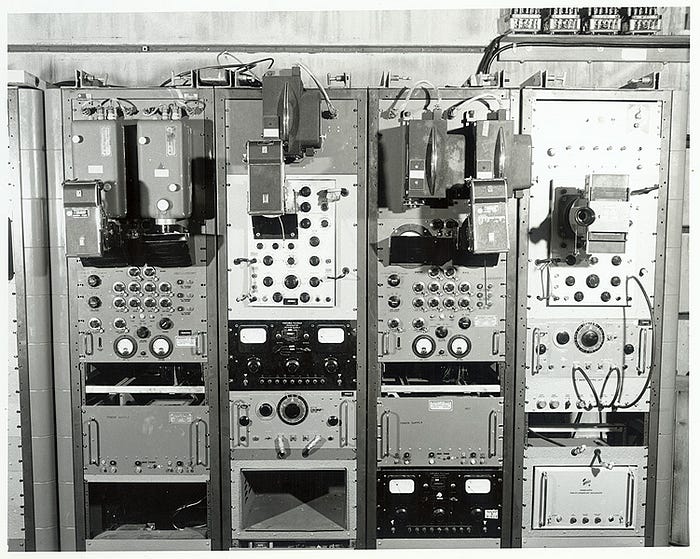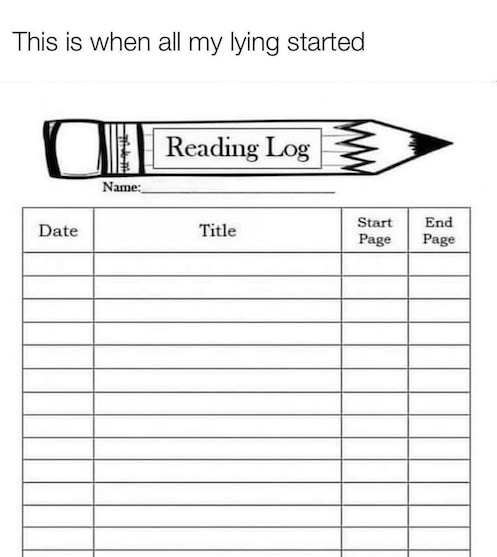Opting out of Oppenheimer: My Father’s Atomic Obsession
The American tale of a nuclear family

—
In July 1945 the first detonation of a nuclear weapon happened in the New Mexico desert. It happened at a place called the Trinity Site. Until just a few months ago, a large part of the modern world had forgotten, didn’t know, or didn’t really care about that fact.
The movie Oppenheimer has brought the story behind the evolution of the atomic bomb back to the mainstream, making it both hashtag-able and trending.
I have conflicting feelings about that.
You see, that horrible, fantastic, historic moment in New Mexico also sparked something important inside my father. A young man of 14 at the time and living in South Bend, Indiana, after the events of that first test of the atomic bomb, my father was enamored with and fascinated by the science and mechanics of both nuclear weapons and nuclear energy.
My dad was born smack dab in the middle of eight children. He and his brother Bob were so-called “Irish Twins,” born eleven months apart and inseparable. My dad, named Tom, was small because he had been sickly as a child, and he was awkward. His brother Bob was big and convivial. They were quite a duo. Both smart and funny and full of life. Abbott and Costello of the Midwest.
Tom was not that good in school, mostly likely due to undiagnosed dyslexia, but he had an aptitude for math. After high school, he got a technical certification from DeVry in Chicago. In 1957 he was recruited as an electronic technician by Sandia National Laboratory in Albuquerque, New Mexico.
You’ve probably heard of the infamous laboratory in Los Alamos, New Mexico. If you saw the Oppenheimer movie, you may have learned about it there. Oppenheimer’s work built that research lab and he also served as the Director of the Los Alamos Laboratory from 1943 to 1945.
But there is another National Laboratory in New Mexico, and that lab was also engaged in the research and science behind nuclear weapons. Sandia National Laboratory is a larger lab than Los Alamos and is located in Albuquerque.
In the late 1950s, at Sandia, my dad had found his way to the heart of the work being done in nuclear research during the early days of the Cold War.
It was work he would embrace and love doing for more than forty years.
My dad was a complete nerd. Glasses, pocket protector, pants too short with white socks. All of that, right to the stereotype.
He was also smart, socially awkward, but gregarious enough. People liked ol’ Tom and he liked people.
In the Fall of 1958, while working at Sandia he met a pretty young secretary (back when that was still the job title). She had moved from Oregon to New Mexico at first to help her brother take care of his kids, and later she was also hired on to work for Sandia.
In Albuquerque in the 1950s, Sandia was a really good employer. Still is, actually.
My mother was young, single, and worked at a job that was located on an air force base. What I mean to say is that she was surrounded by young and available men.
My mom dated a bit and she and her roommates had their youthful fun. Then my beautiful mom met my nerdy dad, and so began their story.
After that first nuclear test happened at the Trinity Site, in the years that followed, there were plenty more tests of nuclear weapons. My joke has always been that those years were about, “Hey, let’s blow this up to see what happens,” but all of those tests were nothing to joke about. They really were testing multiple forms of weaponry to better understand the power and capabilities.
Two places where nuclear weapons testing occurred for decades are a group of small islands in the Pacific Ocean and in the desert in a dry lake bed between Las Vegas and Reno, Nevada.
It was in 1958 that my dad found himself out on an island called Bikini Atoll, doing telemetry for several tests of thermonuclear explosions.
After returning home, he then found himself sent out to the Salton Sea, where ballistics tests were being carried out. Family scrapbooks contain really goofy and incredibly embarrassing love letters from my dad to my mom, quick missives sent during the time while they were dating but not yet married. Letters postmarked from the Salton Sea in California.
Once my parents were married and after the birth of my brother, my dad went back to school at the University of New Mexico to complete his bachelor’s degree in electrical engineering. He had been told if he wanted to continue to grow in his career at Sandia, he’d need a full degree. So he worked and went to school. My mom worked and took care of her firstborn.
Later, he got a job opportunity to go to Los Alamos with the hope of improving his career by working on a particle accelerator. He moved his wife and son and began work up the hill and the small but mighty lab. Los Alamos was considered more prestigious.
My mom was also able to get a job at the lab in Los Alamos, and they lived and worked and really enjoyed living there. This was the mid 1960’s and things were hopping. Soon enough, my sister was born.
Then came a job opportunity through a good friend that promised even better career advancement if my dad would move over to the Nevada Test Site, which back then was called the Tonopah Test Range.
While working at the Nevada Test Site, my dad worked in an area of the site called Area 52. You know… just next door to Area 51*?
And it was there in Tonopah that I enter the story. My folks had only really planned for two kids, but oops. I guess I had something to say.
Not long after I was born, the family then moved back to Albuquerque and Sandia National Laboratory, and that is where I was raised. I have only vague memories of Nevada, I was really too young to remember anything.
New Mexico is where I’m from and who I am. Something I remain proud of and always will.
Growing up I loved going through my family’s photo albums. My mom was an avid scrapbooker and so I would spend hours poring over all of the bits of bobs of her history.
My dad also kept plenty of photos. He would get unclassified photos from many of the projects he worked on and keep them as mementos.
I guess back then I never thought it was weird that our family photo albums contained images of mushroom clouds. Not just one or two, a bunch. My dad avidly collected images and details of the site and what was tested.
Black and white photos of various equipment were also to be found in those scrapbooks. And brochures and technical manuals. My dad spent a career fascinated with and dedicated to the development of nuclear weapons and later, nuclear energy.

—
Growing up during the Cold War in New Mexico was maybe a little different than it was for kids in other states. A lot of our playground chatter was about whether or not the Russians would drop a bomb on New Mexico if the so often threatened nuclear war began.
We’d debate the merits of running toward ground zero or running away from it. Was it better to be immediately vaporized, a shadow on a wall like those horrific photos from Hiroshima? Or better to be alive but deal with radiation sickness? Real fun playground talk like that.
These were the topics of debate on the minds of Cold War kids in the 1980s. I think we’ve collectively forgotten that feeling. That fear. I grew up in a town with a big military base and a National Laboratory. I grew up in a state that in the 1990s often showed up in various ways in the stories told on the X-Files television show.
Both of my parents held security clearances, so it wasn’t unusual to walk home from school and see government men in dark suits (so called “G-men”) who were interviewing our neighbors because one or the other of their security clearances was up for renewal. And we answered the door for the G-men because our neighbors worked at the Lab too.
It’s always been strange to me when people think what my dad did or that time in history was cool. It was never cool to me. My dad was obsessed with this stuff and would torment us kids for hours and hours telling the stories. Over and over. It was exhausting.
He’d talk about being out there on the island, and it was time for a test and he put his hands over his eyes and the light from the explosion was so bright he could see the bones in his hand. I always thought that was probably a bunch of bullshit, but over the years I’ve talked to others who were there and they said the same.
He’d talk about weapons and telemetry and words I didn’t know and didn’t want to know. He’d talk even when I didn’t want to hear. He would tell the stories and go on and on and on.
Then for many years, there was a whole lot of backlash about the development of nuclear weapons. For a long time, I didn’t tell people what my dad did for a living because more than one person had given me a long lecture about why what he did was bad and how I should be ashamed.
I was never ashamed. I was just tired of his obsession and being forced to listen to his stories again and again. Those photos of mushroom clouds and everything that went with the continuing development of Oppenheimer’s deadly toy were forced on me, an unwelcome part of my childhood, and now it seems I can’t escape it even well into my adulthood.
My father was diagnosed with Pulmonary Fibrosis in 2002. He was given three to five years to live. It took a while for him to reconcile himself to this diagnosis and with time, we came to understand that the irreparable scarring in his lungs was most likely due to the inhalation of beryllium.
Which is to say, it was a side effect of the work he had done for all of those years.
He had also been exposed to a whole lot of radiation, back when they didn’t always know what all of those bombs and all of that radiation would do.He had absorbed so much that my mom said she counted fingers and toes when each of her kids were born because she just wasn’t sure how we’d turn out.
Given all the radiation, one might think that it would be cancer finding its way to my father. In some ways, the pulmonary fibrosis was worse. The ever-lessening lung function took his oxygen and his ability to tell long-winded stories. It robbed him of his voice. The voice used to torment and bore and prattle on for decades. The disease forced him to go silent in order to breathe.
What a strange and cruel irony.
I remember one hospital stay when we’d thought it was the end of his life, but he rallied. When he was sitting up in bed and recovering, I asked him if he wanted us to file a claim along with a group of people who were seeking compensation for their beryllium exposure from doing the same kind of work he had done.
While the United States government would never admit fault, they would admit that maybe there had not been enough safety measures in place over the years. Beryllium is one of the more nasty elements on the periodic table.
My dad said no, he didn’t want us to file. He was proud of the work he did and he accepted the consequences. He said he was proud to have served his country both in the military and with the National Laboratories.
His illness was a price he was willing to pay.
It’s a little odd and dislocating to see the word Oppenheimer as a trending topic on Twitter. To hear younger people talking excitedly about going to see the movie and learning about the odd little man who created something so immense and awful.
What was so nerdy and goofy and embarrassing about my dad is suddenly… cool? I did not see that one coming.
I recently heard that there is a waiting list of people who want to go tour the Trinity Site when it opens again in October (it’s only open twice a year in April and October).
My dad used to lead tours at the Trinity Site. He could go and tell all of his old stories to groups of people who hadn’t heard them before.
In retirement, he also was a docent for the National Atomic Museum which is now called the National Museum of Nuclear Science and History. I always felt a little sorry for those school kids who went to visit the museum on a field trip and got my dad to lead their tour. Oh god, those poor kids had to listen to him drone on. He loved every minute of it.
I’ve had a few people ask me if I am going to go see the Oppenheimer movie and I usually say no with a quick vigor that raises an eyebrow. If I know the person well enough, I’ll explain that it would be like sitting through three hours of all those stories my dad tortured me and my siblings with throughout our childhoods. If I don’t know the person that well, I’ll just demur and say I think the movie is a little too long and I might catch it on streaming.
The truth is, I am not sure that I want to see it. You see, that story doesn’t hold the mythic sway for me that it might hold for others.
I asked my mom, now nearing the age of 89, if she was going to see the movie. She was a lot closer to all of the action than I ever was. She said that she had hoped to see some of the old buildings in Los Alamos in the movie, but once she heard they’d built a set and didn’t film in the actual buildings, she was less interested too.
She told me how she remembered back in the 1940s and hearing about the test at the Trinity Site. Then later how scared she was when the atomic bomb was used in Japan. She would lay awake at night in terror for what it meant for the fate of the world.She said how awful it was that the atomic bomb was used. And how awful World War II had been before the atomic bomb was used. It was all just awful.
Once in the 1980s when I was feeling my teenage oats I asked my mom how she could possibly work at a place that made nuclear weapons. Her reply is something I have remembered for many years. She told me that she didn’t like nuclear weapons either, but other countries had them. Countries that were not friendly to the US. She was able to reconcile it in her mind because, she said, the US needed to be able to defend itself.
I think about what she said quite often. I can both agree and disagree if I think about it long enough.
For months it seems that all I see are either photos of bubblegum pink Margot Robbie or black and white emaciated Cillian Murphy.The amount of money spent on PR for these films must be staggering.
I suppose it has paid off, both broke box office records on their opening weekend and spawned a thousand think pieces. Exploration of the history of both a plastic doll and nuclear war. Both are valid, I think. Both have meaning.
Neither is on my list of movies to see.**
I see promotional photos of the actor Josh Hartnett who plays Ernest O. Lawrence in the film. Lawrence was another important figure in the development of nuclear weapons.
Here’s a fun fact: my grandmother grew up in South Dakota and her brothers were in the same class and friends with Ernest Lawrence. My dad used to ask her a thousand questions about what she remembered about the man she called “Ernie.”
So I guess this story, my American tale of a Nuclear Family, began early, back when the key players were just kids and the Great Depression hadn’t even happened.
My father passed away in 2005 and I think if he had been alive today he would have wanted to see the Oppenheimer movie, but he would have scoffed at all the ways they got the story wrong, I’m sure.
I’m kind of sad that my enormous nerd of a dad didn’t get his moment in the zeitgeist. He didn’t get to see his lifelong obsession at the center of public discourse, if only for a little while.
I’m sure soon enough, as public interest moves along in Internet time, something new will emerge and the recent interest in Oppenheimer and his work will again wane.
I’ve long thought about writing about my dad and his history, I just honestly never thought anyone would care. Right now, for a little moment in time, my strange, awkward, atomic-obsessed dad and all of those mushroom cloud photos in our family archives are actually at the very height of trendy.
And no one is more surprised than me.

—
Footnotes
*While not quite what this story is about, I did ask my dad more than once about Area 51. I’d asked him what he knew, what he saw. I wanted the inside scoop on the whole alien myth. My dad held a significant security clearance for all of his career and in response to my questions, he pointedly told me that there was nothing he could say.
I’ll never know if he knew anything about Area 51. I suspect not. But then again……
—
**Though once upon a time I was entirely all about my Barbie Dream House with the working elevator.
—
This post was originally published on Medium and more of my work can be found over there @karenfayeth.




